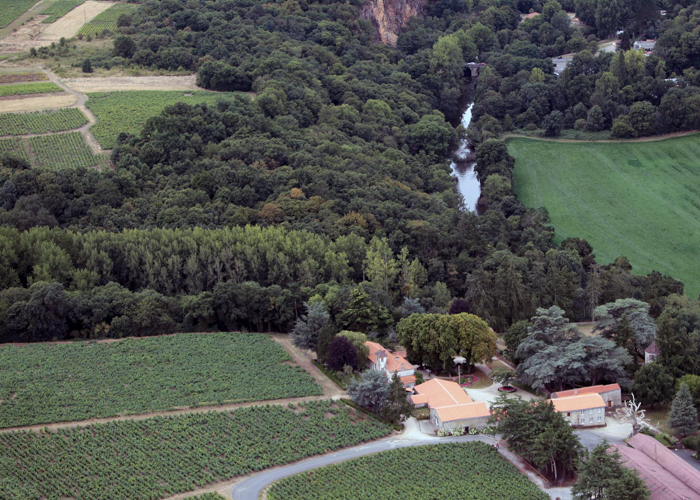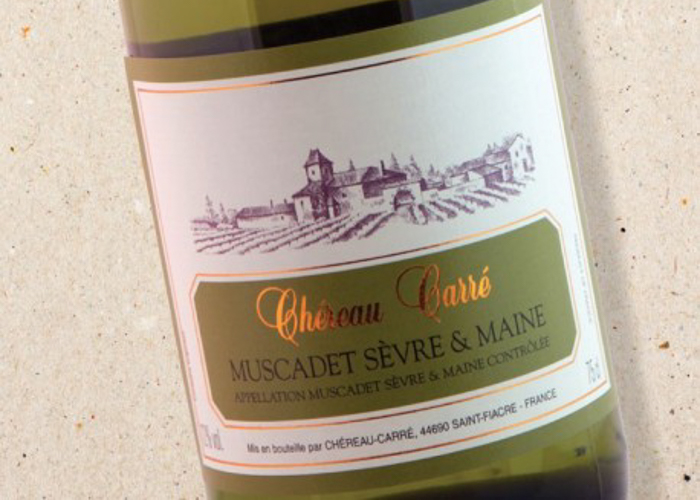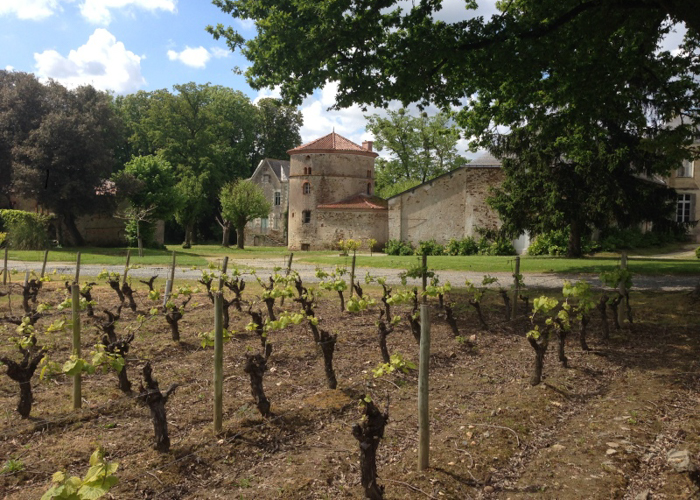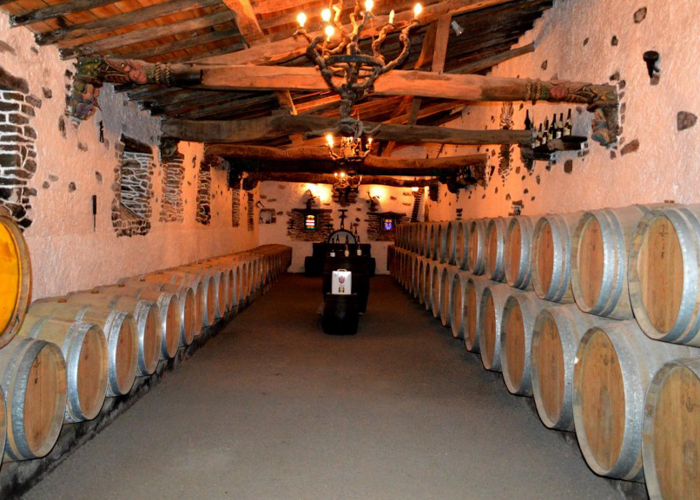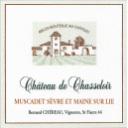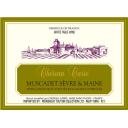Chereau Carre
The House of Chéreau Carré occupies the most privileged position in the Loire-Atlantique department of France. This family-owned property dates back to the 15th century. The vines here are some of the most prized in the region of the Muscadet Sèvre-et-Maine. The property is managed by Bernard Chéreau, whose family origins span back to the eleventh century. Bernard’s passion for Melon de Bourgogne is evident in the quality of his wines.
Bernard is constantly innovating and seeking to show off the incredible sites of his domain. These sites are part of a new system used to identify vineyards (called Cru Communaux). The first is Comte Leloup de Chasseloir. This site at the front of his estate is composed of over 100-year-old vines growing in slate soils. The site is three hectares of vines on a plateau that overlooks the river. The wines are then aged in the only underground cellar within the region.
The vines are planted on the south-facing hillsides of the River Maine, which has excellent drainage and a southern exposure conducive to perfect ripening of the grapes. The soil is made of schist, a flat grey stone of the slate family, commonly found in the region. These stones provide excellent drainage and allow water to infiltrate the earth. The vine roots dig deep down to find the water and minerals they need. It is 10 hectares of 40 to 80-year-old vines, enclosed by the two rivers and surrounded by forests. The wine is fermented with indigenous yeasts and aged on the lees in cement tanks. It is then aged for six months priorto bottling.
More about Muscadet:
Muscadet (“muss-kuh-day”) is a bone-dry, light-bodied white wine from the Loire Valley of France that is made with Melon de Bourgogne grapes. Muscadet is loved as an excellent food pairing wine due to its minerally, citrus-like taste and high acidity. The appellation, Muscadet Sèvre et Maine, is the largest and most important region for high quality Muscadet. Melon de Bourgogne (the Muscadet grape) originally came to the Loire Valley from Burgundy. It is a child of Pinot Noir and the nearly extinct Gouais Blanc and is related to Chardonnay, Gamay Noir, Auxerrois, and Aligoté (among a few others). It grows well in cool climate marine areas and, because of this, Melon has been planted experimentally in regions such as the Puget Sound AVA (next to Seattle, WA) and the Willamette Valley AVA in places like the Van Duzer Corridor that receive cool breezes.
Muscadet ≠ Muscat Muscadet is a dry white wine and is not related to Muscat, Moscatel or Moscato which are different grapes and all generaly sweet.
Muscadet (Melon) is a wine for those who love anything-but-fruity wines. They are lean, green, and have a fascinating almost saline-like quality to the taste. In fact, the Muscadet vineyards closer to the sea receive more of this salty note due to salty sea breezes! It is common to see these wines aged on the lees (labeled “sur lie”) which is a process of aging wines on suspended dead yeast particles (called lees). Lees-aged Muscadet attain an almost lager-like taste with a creamy texture and yeasty flavor. The longer on lees, the richer the texture; many producers will age their best wines 2–3 years in this fashion. You will find a touch of fruit in these wines in the form of almost pithy citrus flavors and subtle unripe apple or pear notes.
Food Pairings: Light-bodied white wines like Muscadet are perfect palate cleanser wines due to their natural high acidity. They will happily stand up to zesty vinaigrettes and other high-acidity dressings. However, Muscadet’s true calling is matched with seafood, particularly if you’re a fan of bivalves (mussels, oysters, and the like). In Nantes, a favorite regional dish, called Moules Frites, is made by flash cooking mussels in a splash of Muscadet wine and tossing them with shallots and green herbs and French fries.
A favorite French cooking wine, Muscadet is the original white wine in beurre blanc sauce (white wine butter sauce). The perfectly emulsified sauce was invented by Chef Clémence Lefeuvre in the early 1900’s at her restaurant La Buvette de la Marine close to Nantes, France. Chef Lefeuvre said she had intended to make sauce bearnaise but forgot to add egg and tarragon. Beurre blanc is now a standard in French cuisine.
